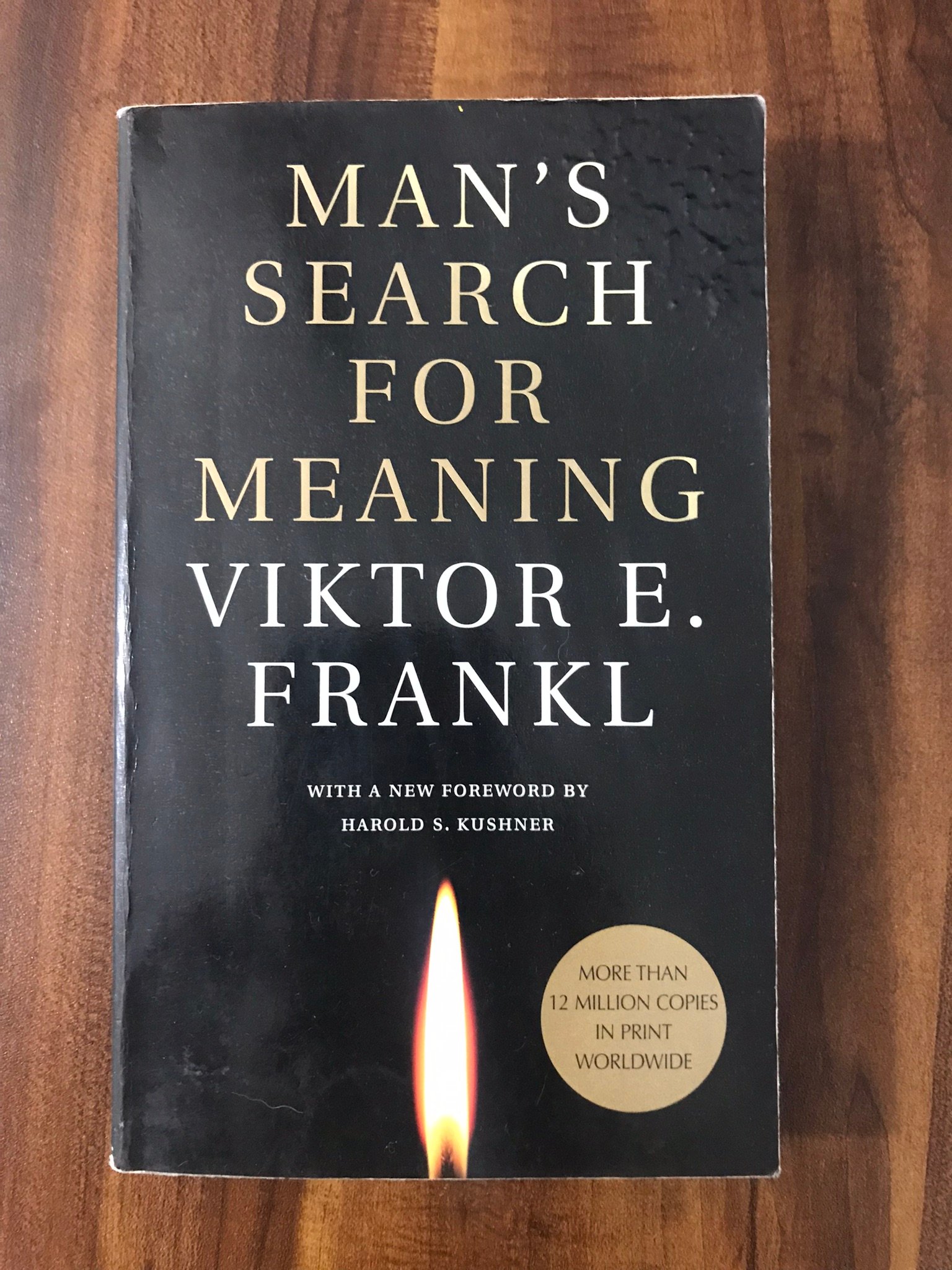This book was originally published in 1946, but it’s more relevant today than ever. In my opinion, timelessness is the measure of quality in writing. By that measure, this book is a gem.
The author, Viktor E. Frankl, was a successful psychotherapist in Vienna during World War II. Being a successful doctor, Frankl was awarded an American Visa, which would have allowed him to escape Nazi occupation in Austria and live comfortably in America doing his life’s work. However, doing so would require him to leave his parents behind in Austria to face the Nazis alone.
Frankl’s parents were ecstatic that he received this opportunity for his life to be spared, but he was faced with an impossible decision: go to America for a life or freedom and leave his parents behind, or stay in Austria with his parents and face Nazi occupation. The decision plagued him.
One day his father brought home a piece of rubble from a synagogue that Nazis had destroyed. His father told him the piece of rubble contained one of the Ten Commandments. Frankl asked his father which one.
“Honor thy father and thy mother that thy days may be long upon the land.”
At that moment, Frankl decided to stay with his father and mother. He let his Visa lapse and remained in Austria to face Nazi occupation with his parents. Frankl spent four years in Nazi prison camps, surviving unspeakable tragedy. By the time he got out, his entire family – his parents, brother, and pregnant wife – had all been killed by Nazis. The purpose of this book is not to detail the horrors of the experience but to share the insights he gained by surviving. The result is one of the greatest pieces of writing of the 20th century.
Frankl believed that life was ultimately a quest for meaning and that there were three primary sources of purpose in life: 1) work (doing something significant), 2) love (caring for another person), and 3) courage in difficult times. The third one is perhaps most important because it allows a man to have meaning in his life even when every earthly pleasure has been stripped away from him – including his work and his family.
Frankl believed that suffering was an inextricable part of life – just as much as death – but that suffering was unnecessary to achieve meaning. Frankl did not believe in seeking out suffering. To suffer more than necessary is masochistic rather than heroic. Frankl believed that when faced with suffering, the correct course of action was to remove the source of the suffering. Only when the source of suffering cannot be removed does it become necessary to endure.
I believe all humans face unavoidable suffering at some point in life. Whether it be a major event, such as losing a loved one, or a minor event, like getting stuck in traffic. To Frankl, the question isn’t how we will endure these hardships but why? Quoting Nietzsche, Frankl asserts, “He who has a why to live, can bear almost any how.” In other words, a man can endure almost anything if adequately motivated. A man may be ready and even willing to suffer on the condition that the suffering has sufficient meaning.
Frankl found no meaning in money, fame, or sex – in and of themselves – but viewed them as byproducts of the successful man’s focus on something greater than himself. Frankl believed that the more one aimed directly for any of those measures of success, the more one would miss them and that the only way to achieve them was to stop caring about them by focusing on a cause greater than oneself.
Frankl also believed that happiness could not be pursued but instead must ensue. A human cannot be happy without a reason to be happy. Humans, therefore, are not seekers of happiness but of reasons to be happy. Frankl believed the reasons to be happy were love, meaningful work, and courage in difficult times and that these should be the focus of man’s quest.
Frankl also stressed the importance of being able to laugh about things and believed that developing a sense of humor is perhaps the key component of mastering the art of living.
Frankl also addresses the relationship between freedom and responsibility. He believed that freedom and responsibility must remain balanced for life to remain meaningful. A life of freedom can descend into arbitrariness if not met with responsibility. Assuming that life is empty and meaningless frees one from responsibility but eliminates the possibility of achieving fulfillment. For Frankl, freedom and responsibility were two sides of the same coin – with the coin being a meaningful life.
Regarding freedom, Frankl insists that man has the freedom to choose his reaction to his circumstances no matter his conditions. Even a man in a Nazi prison camp had choices about how to react. Frankl knew this because he witnessed some men in camp become savages while others became saints under the same conditions.
In overcoming his own struggles, Frankl focused on the future and its possibilities. He often fantasized about reuniting with his wife, lecturing to his students, and completing his writings. He had no idea whether his wife was still alive or whether any of these things would come to pass, but his belief that they could happen was enough to keep him going in the darkest hours. Frankl witnessed that a prisoner who lost faith in his future was doomed. Frankl maintained his intrinsic optimism even though he estimated his chances of survival to be no better than one in twenty. When trying to give men mental courage, Frankl found it essential to provide them with something to look forward to.
Regarding race, Frankl believed there were only two races: decent men and indecent men. He thought that both were found everywhere and penetrated all groups of society.
More book reviews by Eddie.


0 Comments